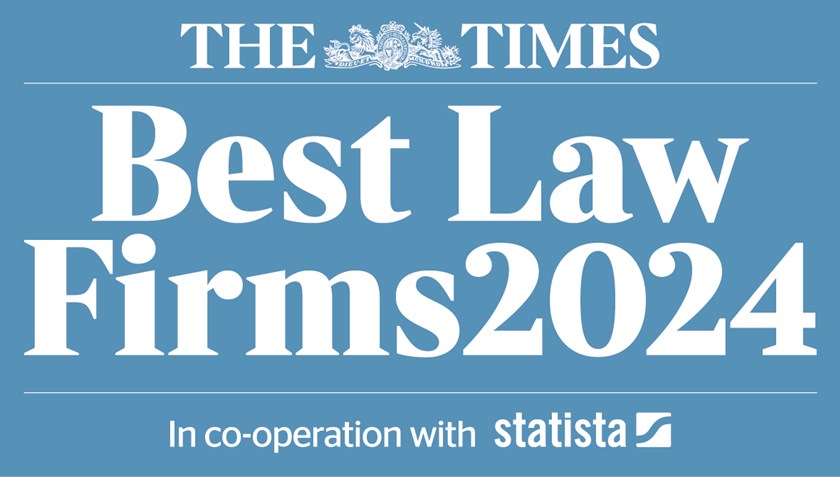Detailed proposals for Fundraising Preference Service announced
News

Of all the proposals that came out of last year's fundraising review, the Fundraising Preference Service (FPS) was the most controversial, with many feeling that it unfairly targeted the charity sector. However, calls for the Government to overlook this recommendation went unheeded and a Working Group was given the task of coming up with practical suggestions for implementing it.
The Working Group presented its recommendations to the Fundraising Regulator in July 2015; in turn, the Regulator has put them out for consultation. The consultation period is rather short: the announcement was made in late August and the closing date for submissions was 30 September 2016.
So what will the FPS look like, if the Working Group's ideas go ahead?
What options should be offered to members of the public?
The Working Group felt that the FPS should be open to individuals, rather than to households, and that people should be able to choose either to stop receiving fundraising communications from specific organisations, or to opt out of receiving all fundraising communications. Members of the public who are concerned about direct mail or telephone calls (as opposed to fundraising materials in general) should be signposted to the Mailing Preference Service (MPS) and the Telephone Preference Service (TPS).
One of the main drivers for the 2015 fundraising review was concern that vulnerable people were being aggressively targeted for donations, and the Working Group has looked for a suitable way for the FPS to protect vulnerable people who are not in a position to sign up to the service themselves. Its suggested solution is that the ability to register a vulnerable person should be restricted to individuals with a power of attorney (or the equivalent).
Once a person has registered, they should be sent a message:
- confirming their FPS registration;
- explaining what types of communication may continue;
- telling them that, if they have given to a charity or other fundraiser in the last 24 months, those charities/fundraisers may contact them to ask if they want to stop receiving their fundraising materials.
The Working Group recommends a two-year limit on registration – individuals should be contacted three months before their registration expires, inviting them to renew it.
What organisations should be bound by FPS opt-outs?
The FPS should apply to organisations with annual fundraising expenditure of £100k or more. The hope is that this threshold will prevent the FPS from having a disproportionate adverse effect on smaller charities. However, smaller organisations should be able to comply voluntarily.
What sort of communications should be covered?
In terms of what forms of communication should be included, the Working Group recommends that it should cover addressed mail, telephones (landlines and mobiles), email and SMS. It does not think that social media and door-to-door fundraising should be included at this stage.
As for message content, the FPS should not apply to everything that the Information Commissioner refers to as "direct marketing" [1], but only to "fundraising communications". The Working Group suggests that the FPS define this term itself, using a definition based on asking what a communication's core purpose is. The term should not include administrative communications, messages of thanks, or materials provided as part of a membership arrangement.
The Working Group mentions the public's views on lotteries/raffles, trading communications and 'hybrid' communications (that is, messages that are not primarily aimed at fundraising but which contain a fundraising message), but makes no specific recommendation about them.
What will organisations caught by the FPS need to do?
Unsurprisingly, their principal obligation will be to make sure they do not send fundraising communications to people who have registered with the FPS, unless they have an overriding consent to do so.
To check their own lists against the FPS's database, organisations will need to subscribe to the FPS. The Working Group suggests that potential subscribers should be required to submit to a validation process, to make sure that FPS data is only accessible to those with a legitimate interest in it. It mentions in passing that there may be a subscription fee for FPS file access, but makes no recommendations on this point.
For registered charities, providing a charity registration number will suffice as validation. The Working Group suggests that the Fundraising Regulator set rules for other organisations, but recommends that "[u]nless safeguards can be introduced", the FPS data file should not in the first instance be made available to intermediaries and sub-contractors, "most obviously those commercial businesses that charities and others may use to out-source fundraising campaigns". So it seems fairly clear that the Working Group doesn't want professional fundraising organisations to be able to subscribe directly. That said, the paper acknowledges that many charities do (and should be able to) outsource their fundraising, and remarks that if "appropriate to enable contractual relationships to function and give the sector flexibility of operation it would be worth exploring the practicality of co-subscriptions, with fundraising charities and others co-subscribing with their chosen sub-contractor".
The Working Group estimates that it will cost organisations £700 per campaign to check their files against the FPS. Subscribers should be able to download an updated list of FPS registrants each day and be allowed up to four months for mail, and 28 days for other forms of communication, to flag FPS registrants on their databases as individuals to whom fundraising communications should not be sent.
Where a person who has registered with the FPS has given to charities/fundraisers within the last 24 months, those charities/fundraisers will have an opportunity to contact the registrant to clarify whether s/he wants to stop receiving fundraising communications from them. It will be for the Regulator to set the rules on how this approach should be made, but the Working Group recommends that:
- the approach should be restricted to clarifying (and, if possible, even improving) existing consents;
- the approach should only be made by post;
- lack of response should be interpreted as confirmation that the registrant no longer wants to receive fundraising communications;
- if organisations receive confirmation from the registrant that they did not intend the FPS 'reset' to include them, they should record this evidence of consent;
- if the registrant confirms that the registration was intended as a total reset, organisations must respect that.
The FPS and the Code of Fundraising Practice
The Working Group recommends that compliance with the FPS should be made a requirement of the Code of Fundraising Practice, and that the Fundraising Regulator should create a system for dealing with complaints about failure to comply with people's wishes not to be contacted.
According to the consultation landing page, the FPS will be launched in 2017. You can find the consultation papers on the Fundraising Regulator's website.
[1] The Information Commissioner's guidance on direct marketing can be found here.
If you require further information on anything covered in this briefing please contact Rachel Holmes ([email protected] , 020 3375 7561) or your usual contact at the firm on 020 3375 7000. Further information can also be found on the Charities page on our website.
This publication is a general summary of the law. It should not replace legal advice tailored to your specific circumstances.
© Farrer & Co LLP, October 2016






